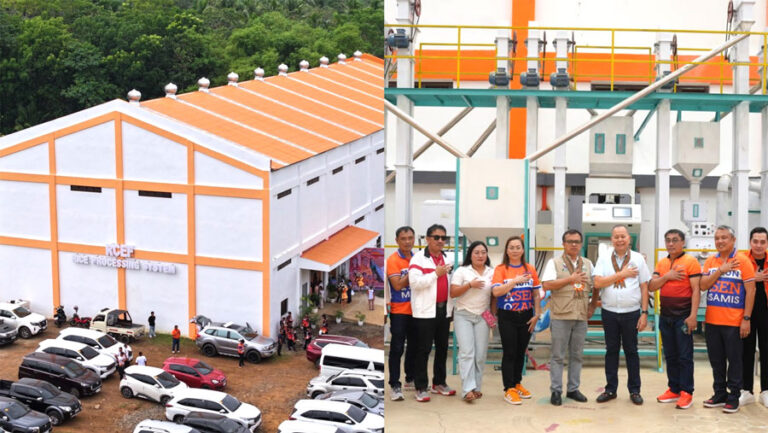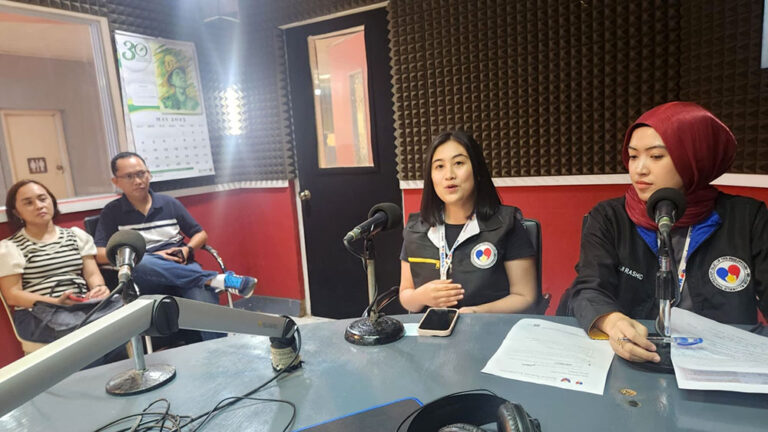‘Basilan girl tested positive’
ZAMBOANGA, BASILAN and Sulu officials have joined the national anti-polio campaign in southern Philippines and officials renewed their calls for parents and guardians to have their children ages 5 years old and below vaccinated against polio.
“This is very important because recent findings showed that there were confirmed polio cases in Mindanao,” Zamboanga Mayor Beng Climaco said.

A nine-year old girl from Basilan’s Maluso town was tested positive for polio, a potentially deadly infectious disease. Health Undersecretary Dr. Myrna Cabotaje went to Basilan, one of 5 provinces under the Muslim autonomous region, and confirmed the new case, bringing to 8 the number of those infected with the poliovirus.
The girl had not received any vaccines for Polio. Samples taken from the girl and sent to the Research Institute for Tropical Medicine and the National Institute of Infectious Diseases in Japan came out positive. A sample of throat secretions, stool or a colorless fluid that surrounds the brain and spinal cord is checked for poliovirus.
Climaco, an advocate of children’s rights to health and education, appealed to parents to bring their children to the health centers for the anti-polio shots as part of the campaign dubbed “Sabayang Patak Kontra Polio,” where children regardless of immunization status will be given a dose of the oral polio vaccine by health workers who will go house-to-house.
Health centers, government hospitals, fixed vaccination posts in villages will also be providing vaccination. Three others cases of poliovirus were also recorded in Mindanao.
The first case is a two year-old girl from Maguindanao province; the second is a one year-old boy from Cotabato City and the third is a four year-old girl from North Cotabato. All of them are currently admitted at the Cotabato Regional Medical Center. The first two cases were unvaccinated with the polio vaccine, while the third received incomplete doses.
Polio or poliomyelitis is a crippling and potentially infectious disease caused by the poliovirus. The virus spreads from person to person and can invade an infected person’s brain and spinal cord, causing paralysis.
Zamboanga City Health Officer Dr. Miravite said polio may also be caused by intake of contaminated food and water. Symptoms include fever, body pain, weakening of limbs and difficulty in breathing. She said polio has no medicines or treatment but only vaccine-preventable.
“That is why we really advocate for children zero to 59 months to avail of the vaccine,” Miravite said, adding, for the last 19 years the country has never had any polio cases until recently, only last September, when seven confirmed polio cases were reported, mostly from Mindanao.
BARMM
The Department of Health said it is currently coordinating with the Ministry of Health in the Muslim autonomous region to intensify polio vaccination efforts in Basilan as it reminded the public to take advantage of the immunization in Mindanao until December 7.
It said during the campaign, all children regardless of immunization status will be given a dose of the oral polio vaccine by health workers who will go house-to-house to ensure that all children are vaccinated. Health centers, government hospitals, fixed vaccination posts in villages will also be providing vaccination.
In Sulu, provincial and municipal officials also spearheaded the anti-polio vaccination campaign in support to the national health campaign.




WHO, UNICEF join campaign
The World Health Organization (WHO) and United Nations Children’s Fund (UNICEF) are also supporting the government’s synchronized polio vaccination campaign. “The polio outbreak is a wakeup call for the Philippines. We must act now to protect children against polio and other vaccine-preventable diseases through immunization,” said acting WHO Representative in the Philippines Dr. Rabindra Abeyasinghe.
“To stop this outbreak, we aim to reach nearly two million children within two weeks. We will work closely with the Department of Health to achieve this target. We need bayanihan from everyone – the parents and caregivers, mayors, governors, community and religious leaders, health workers, volunteers, and media partners,” Abeyasinghe added.
The Philippines has seen a decline of immunization coverage in the past few years, including for protection against polio. In 2018, at least 66% of children completed their oral polio vaccine (drops) doses and 45% received their inactivated polio vaccine (injection) dose. At least 95% of children under 5 years old need to be vaccinated, irrespective of their current vaccination status, to stop the spread of polio in the country. (Zamboanga Post)
Like Us on Facebook: The Mindanao Examiner
Like Us on Facebook: The Zamboanga Post
Follow Us on Twitter: Mindanao Examine
Mirror Site: Mindanao Examiner Blog
Digital Archives: Mindanao Examiner Digital
Media Rates: Advertising Rates



